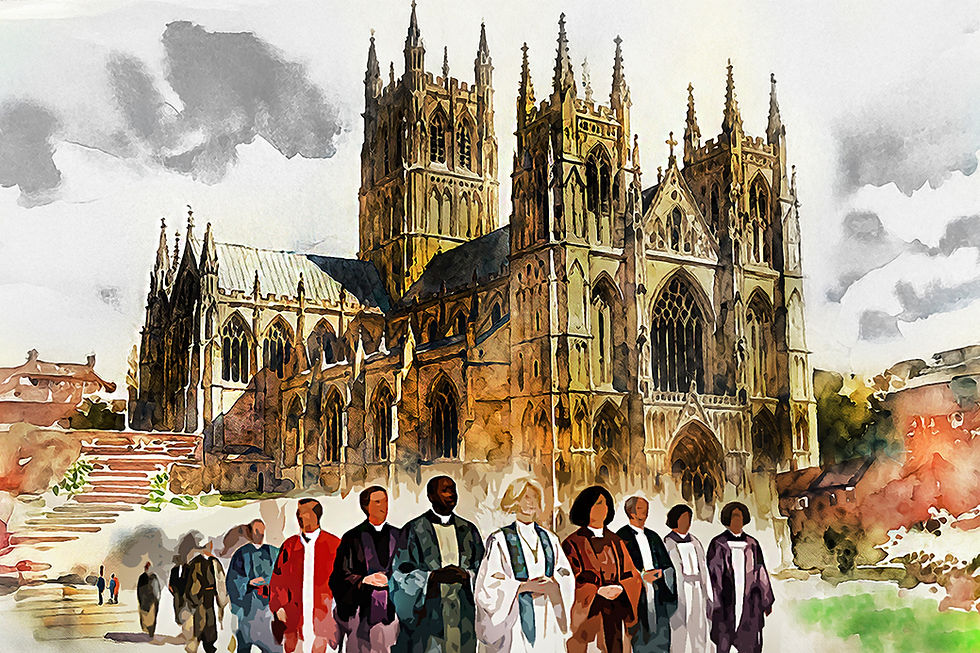Governance Old & New
- info5197844
- May 9, 2023
- 2 min read
GOVERNANCE, OVERSIGHT AND SUSTAINABILITY
Thousands lined the streets, despite the rain. More than 2,000 guests from very varied walks in life enjoyed a privileged view within the Abbey. And millions watched at least some of King Charles III’s Coronation on a screen.
The service was extraordinary blending 1,000 years of tradition with a much more contemporary snapshot of the UK today. The music was sublime and for many the pageantry was quite stunning.
The proximity created by the cameras also revealed a very human face to the newly crowned King and Queen with some fragility and vulnerability combined with gladness and a respect for the significance of the day and the symbolism of the service itself.
There were some moments of dissonance. Republican protestors were swept away under what many consider to be a controversial new law. And a suggestion that the nation sitting at home could swear allegiance prompted bemusement and a very British analysis of the communication, as much of the substance, of what was being asked.
In the run up to the Coronation perhaps the biggest fear was apathy and, at one very simple level monarchy, does appear to be a peculiarly ancient form of governance for a 21st century and rapidly changing world. (From Fidelio’s vantage, with our offices but 500 yards from Buckingham Palace, we can attest that what felt low-key in the run-up had become a swell of people and excitement by the Coronation weekend.)
Whatever one’s views, the Coronation provided an opportunity to reflect on our history, where we are today and where, as a society, we might want to be. The thread of sustainability is no coincidence, in particular for a monarch who has shown a passionate commitment to environmental issues.
THE LONG-TERM PERSPECTIVE
Business and politicians are frequently charged with short termism and can struggle to take long-term decisions that look beyond this year’s earnings or next year’s election. Several climate leaders have commented on how important other voices are in galvanising support for the planet – in particular faith groups who can bring a much longer-term perspective. Similarly, politics and business can often be followers in recognising the rich heritage that diversity can bring, with other groups - civic and faith organisations, diversity champions, minority ethnic groups and indigenous peoples – leading the way.
Boards are tasked with promoting the sustainable success of the companies that they lead. The Coronation was a pageant with seemingly little immediate bearing on either civic or corporate life. But there are a number of strands of relevance:
The notion of service, for example, extends to Boards with the concept of “serving on a Board” more commonly used in American parlance.
Equally the longer-term perspective is so important for Boardrooms, including horizon-scanning and the willingness to articulate what may seem outlandish today but may be of existential consequence tomorrow.
And finally, Boards benefit from an understanding of visibility and representation. Being (i) thoughtful about how diverse perspectives are reflected and included within an organisation and (ii) willing to challenge and champion change, are both important contributions that all Boards should be prepared to make.
Fidelio’s focus is building Board capability for a fast-changing world. To learn more about how we can support you and your Board through Search, Evaluation and Development, please contact gkarrancumberlege@fideliopartners.com.



Comments